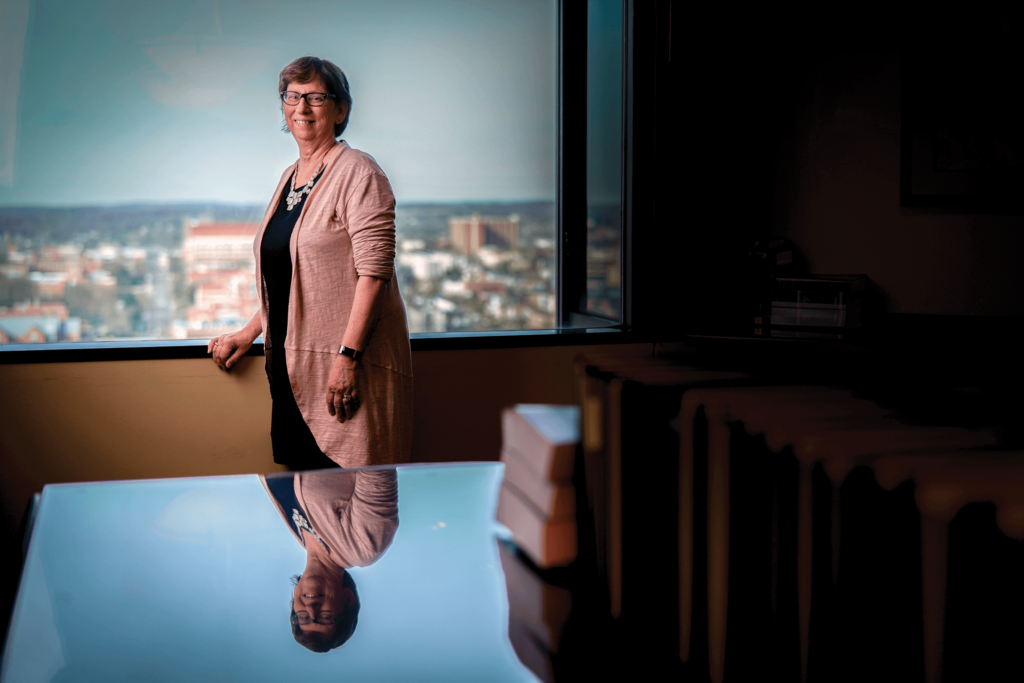Beth Ford (’77), doesn’t believe people should forever be judged on the actions they have taken on the worst days of their lives.
That’s what has led her to work as a community defender for the Federal Defender Services of Eastern Tennessee.
And the satisfaction that comes from helping those people find their way back is a greater reward than most attorneys will ever experience.
Describe the work you do and what a day on the job might involve.
As the federal defender for the Eastern District of Tennessee and the executive director of a non-profit with a multi-million-dollar annual budget, none of my days are the same. Nor are many of my days what I thought they would be when the alarm went off in the morning.
A Day in the Life of the head of a federal defender organization might include a meeting with the court clerk, probation office, and United States Attorney’s office to negotiate the handling of several hundred motions expected to be filed under the First Step Act, a task which involves advocacy for a whole class of clients. That meeting might be followed by a lunch and learn to teach the Criminal Justice Act panel attorneys how to advocate effectively for their clients under that new statute. The rest of the day could be taken up by preparing to speak at a national conference about pretrial detention rates and drafting new standards to improve the quality of representation provided by federal defenders and panel attorneys. Every day has a heavy dose of advocacy and persuasive writing.
Why have you made advocacy such an important part of your legal career?
I have a passion to be the voice for the voiceless, to be sure that people are not judged by what they might have done on the worst day of their lives, and to work to protect and preserve the Bill of Rights, particularly the Sixth Amendment, for all of us.
What are some of the frustrations that come with this work?
Bad legislation and bad case law can happen so quickly, but positive change for the criminal justice system usually comes very slowly. Issues have to be developed and move through the Courts. Comprehensive reform takes time. Changing culture seems to take forever.
What are some of the rewards that come with this work?
Having a panel lawyer call and say that she got a good result because of the training that our office provided. Hugging a former client who was released 10 years earlier than she thought that she would be because of a change in the law that came through the work of our office. Knowing that our clients are receiving the best representation possible.
If you could talk to law students who are considering a similar career path, what would you tell them about your work in advocacy and what advice would you give them?
This is the best job ever. Seek out mentors, take clinic and trial practice, do an externship or internship in a defender office. Be nice to people and network. And look for a first job that will give you courtroom experience.
This is the seventh and final installment in a series of interviews originally published in the May 2019 issue of Tennessee Law.
